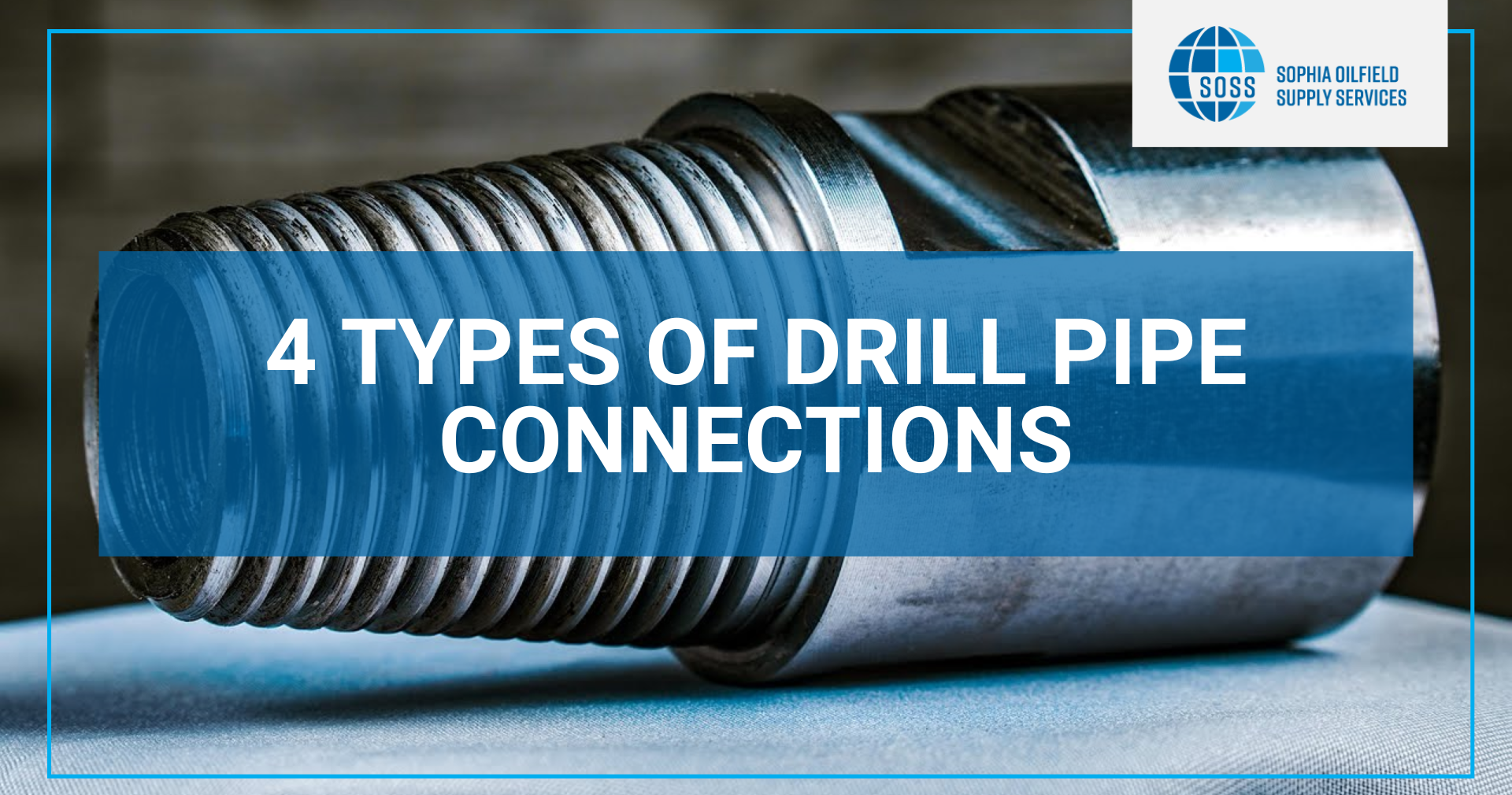Drill pipe connections play a critical role in the drilling industry. They are the link between the drill string components and provide the necessary strength, sealing, and transmit torque to the drill bit.
These connections withstand the demanding conditions encountered during drilling operations, including high pressures and stresses, different loads, and corrosive environments.
Various types of drill pipe connections have been developed to meet specific operational requirements and challenges, offering different features, strengths, and limitations. That is why it is essential to know the type of drill pipe connection needed, which is what this post is about. Read on!
Importance of Selecting the Right Connection Type
Selecting the right drill pipe connection type is crucial for the success and safety of drilling operations. The choice of connection or drill pipe joint can significantly impact the efficiency and even more importantly, the safety of drilling projects, such as by preventing unfortunate accidents.
A compatible connection will remain intact during operation, enhancing drilling performance, minimizing downtime due to failures, and reducing the risk of environmental hazards such as oil spills or gas leaks.
Additionally, the right connection type can go a long way in prolonging the life of the drill string and drill collar, reducing the frequency of replacements, which can result in cost savings for drilling companies.
Types of Drill Pipe Connections
There are various types of drill pipe connections. They are primarily divided into API threads and premium connections.
While both are rotary shouldered connections, API connections are standard connections with a single shoulder compared to a premium thread.
Premium threads are proprietary connections with a double shoulder and are available in multiple sizes. They offer enhanced performance with better metal sealing, torque shoulders, and durability and longevity compared to standardized API connections, making them a better choice for more demanding drilling scenarios
Below is each API spec connection explained in detail:
REG (Regular Style Connection)
The regular style connection (REG) is specifically designed to connect inner upset drill pipes. This connection features the smallest outer diameter and results in the inner drill pipe diameter being lesser than the thickened part of the drill pipe, and the internal diameter of the thickened portion of the drill pipe is smaller than the inside diameter. The REG connection is used for bit connections in drilling operations.
The American Petroleum Institute (API 5CT) has retained all specifications for the REG connection, due to its specialized application and suitability for bit connections.
Its design suits the unique requirements and challenges associated with bit connections, making it a preferred choice for many drilling professionals.
As the drill bit is located at the end of the drilling string, the REG connection experiences reduced stress concentration in the drill pipe thread compared to other connection types. That reduces the risk of fatigue failure and enhances its overall reliability.
The REG connection is primarily for bit connections, so it may not be suitable for other drilling applications or equipment configurations. Its specialized design limits its versatility compared to some other connection types.
When using REG connections, the drilling pipe diameter is smaller than the inner diameter of the thickened portion due to the connection configuration. While this may not be a significant issue for bit connections, it can impact fluid flow rates and pressure ratings in particular drilling scenarios.
IF (Internal-flush Connection)
The internal flush (IF) connection has a larger outer diameter and connects external upset or internal and external thickened drill pipe. This connection forms a drill pipe joint with an inner diameter that is identical to or almost equal to the diameter of the pipe body.
One of the key advantages of the IF connection is the consistent inner diameter, which ensures a higher fluid flow rate and reduces the risk of restrictions or blockages during drilling operations, increasing efficiency.
However, a notable disadvantage of the IF connection is the potential for stress concentration. The design of the connection, particularly the triangular tooth design, can lead to localized areas of high stress. That may increase the risk of fatigue failure over time, compromising the integrity and reliability of the connection.
Because of the stress concentration issues associated with the IF connection and the development of newer, improved connection designs, the American Petroleum Institute (API) has replaced IF connections.
FH (Full-hole Connection)
The full-hole (FH) connection connects the inner and outer thickened drill pipe, forming a drill pipe joint with an inner diameter that matches the thickened end diameter. Both the inner and outer diameters of the connection are smaller than the inside diameter of the drill pipe.
The FH connection offers three different thread specifications, namely V-0.065, V-0.05, and V-0.040, providing options for different drilling requirements and conditions. This versatility makes it widely used across various drilling operations, allowing flexibility and adaptability, such as with drill collars and bits.
One of the limitations of the FH connection is its smaller inner diameter compared to the inner diameter of the pipe. While this may not be a major issue in many drilling operations, it can impact drilling fluid flow rates.
Also, despite offering three different models, the FH connection has fewer thread specifications compared to other drill pipe connections. That may limit its adaptability to certain drilling conditions or equipment configurations, requiring careful selection to ensure compatibility and performance.
NC (Numbered Connection)
The numbered connection (NC) is made for drill pipes with a yield strength of at least 75,000 PSI or more, often referred to as high-strength drill pipes. The API recommends using NC connections for high-strength drill pipes due to their robust design and compatibility requirements.
NCs are engineered to join pins and boxes with equal thread designations, ensuring a secure and reliable connection. They are interchangeable if the grade codes match, meaning if the thread pitch is similar and the different threads are compatible.
The NC connections offer a variety of sizes and configurations to suit different drilling requirements and conditions, ranging from NC10 to NC77. They are suited to bear torsion, pressures, and various drilling rig motions, ensuring durability and reliability in demanding drilling operations.
However, mismatched thread types or pitches can lead to connection issues, compromising the integrity and reliability of the connection. So, it is essential to check with the tool joint manufacturer to ensure the compatibility of NC connections and thread types.
While NC connections are versatile and widely used, they are designed for high-strength drill pipes with a minimum yield strength of 75,000 PSI or above. That limits their application to specific drilling operations requiring high-strength equipment.
About Sophia Oilfield Supply Services
SOSSUSA is a leading distributor of oil tools, specializing in high-quality tubular and rigging equipment. We offer a comprehensive range of products, including new and used drill pipe for sale, engineered to deliver optimal performance in the most challenging drilling conditions.
Contact us today to receive a customized estimate for our drill pipe solutions. Experience unparalleled durability and reliability tailored to meet all your drilling operation needs with SOSSUSA!


